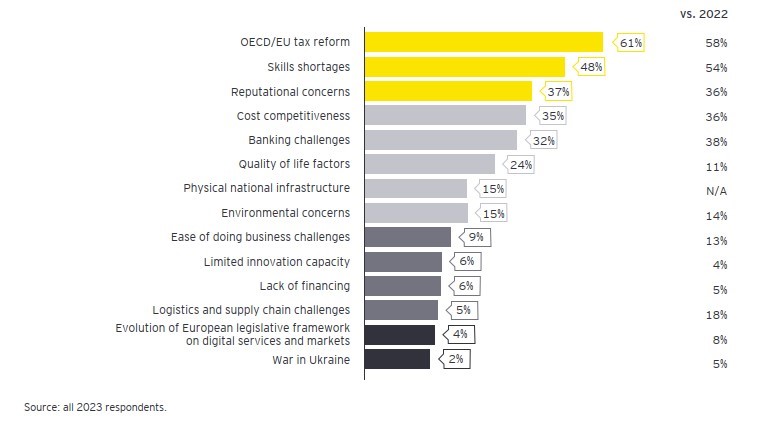Gaming, understood to incorporate both iGaming as well as eSports, video game development and electronic games, was listed among the top three business sectors that will drive Malta’s growth over the next five years.
The result stems from EY Malta’s annual attractiveness survey which assessed the replies of 130 FDI companies present on the island, which were asked a series of questions between July and August 2023.
The majority of respondents (51 per cent) have Europe as their key target market, while 16 per cent listed North America. When asking about the future, investors believe that over the next five years, tourism and leisure, gaming, and artificial intelligence will be the top three business sectors to drive Malta’s growth.

Tourism and leisure, which saw a seven per cent increase over last year, remains in first place at 58 per cent reaching proximity to 2019 levels. The next most cited sectors were gaming at 49 per cent and artificial intelligence at 45 per cent. Aviation, and payment and FinTech are tied in fourth place at 32 per cent each.

Overall, Malta’s attractiveness to foreign business held steady from the previous year, at 59 per cent, but lags far behind the highs previously registered prior to the pandemic. Malta’s corporate tax policy came in as the number one feature attractive foreign business, and on the flip side, international tax developments in the form of OECD and EU reform, was listed as the biggest risk to the country’s attractiveness as a jurisdiction.

The second biggest risk is an area that the Malta-based iGaming community is all too used to facing – a skills shortage. In third place was reputational concerns, followed by cost competitiveness and banking challenges.
For a more detailed breakdown of the results, click here.





